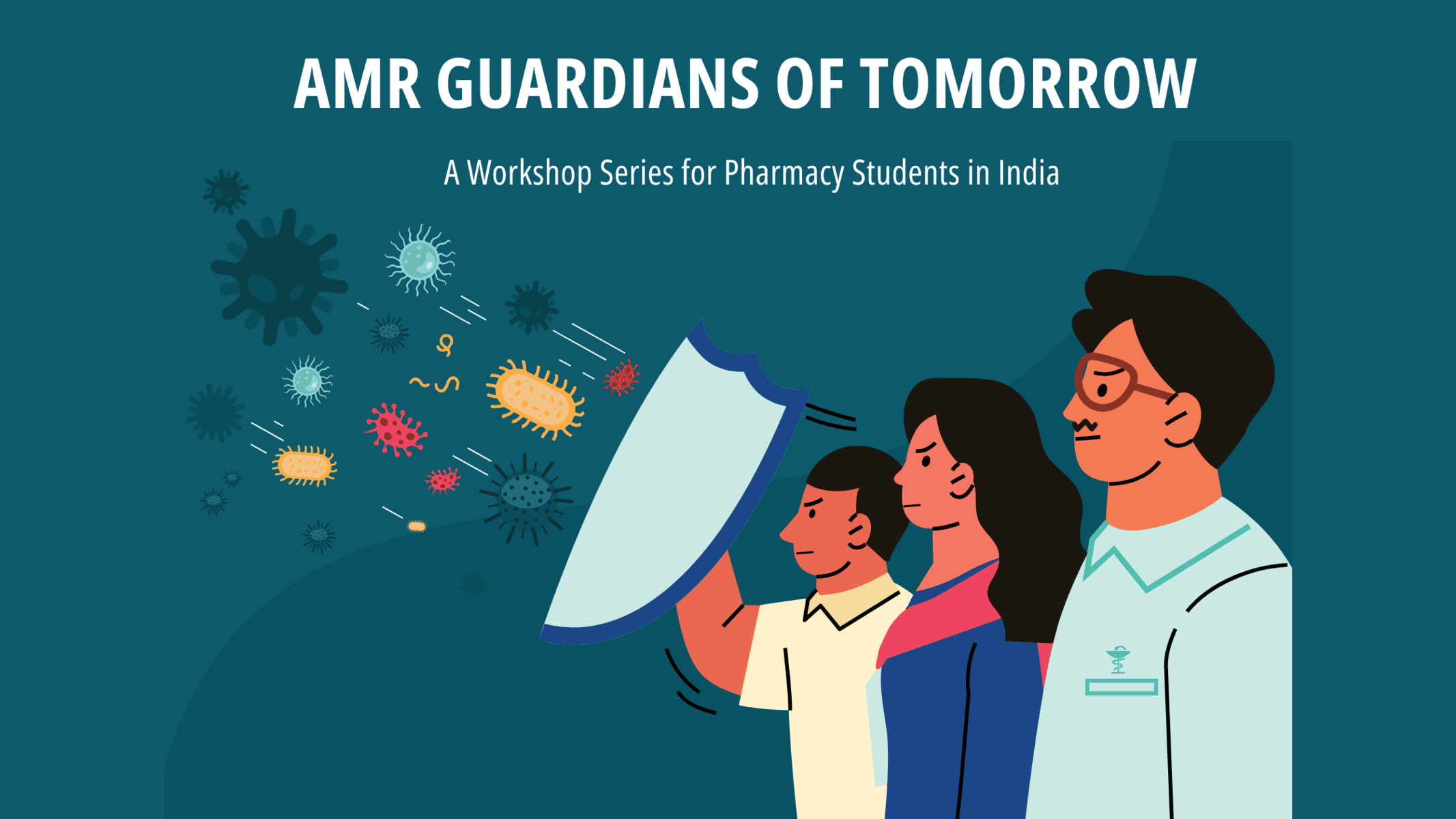In India, it is common for people to visit local pharmacies to purchase prescription medications, including antibiotics, without a prescription note from a medical professional. Pharmacists frequently face pressure from customers to provide medicines that quickly alleviate symptoms. Often, even if a pharmacy is owned by a qualified pharmacist, the staff may not be properly trained and, as a result, are unaware of appropriate pharmacy practices. These and other factors contribute to the widespread over-the-counter (OTC) sale of antibiotics, a major driver of antibiotic misuse and the development of Antimicrobial Resistance (AMR) in India. The nexus between pharmacies and pharmaceutical companies can also contribute to antibiotic sales for profit, putting people’s health at risk. Additionally, pharmacists in India are often seen as de facto doctors and are frequently consulted for medical advice. These circumstances position pharmacists as crucial players in the effort to combat AMR, highlighting the need for their proper education and training in antimicrobial stewardship, which is the coordinated effort to optimise antimicrobial use to combat resistance, improve patient outcomes, and reduce adverse effects.
India faces the challenge of regulating antibiotic consumption across different sectors to combat AMR while ensuring these life-saving medicines are available to those in need. Pharmacy students, as future pharmacists and pharmaceutical professionals, play a critical role in ensuring responsible and sustainable access to antibiotics. Depending on their educational degree, these students may go on to open pharmacies, work as clinical pharmacists in hospitals, or work for pharmaceutical companies in research, manufacturing, or other roles. As a result, it is critical to provide them with knowledge of AMR and antimicrobial stewardship principles early in their professional training so that they can become advocates for responsible antimicrobial use in their various careers.
The educational curriculum for pharmacy students currently does not cover AMR and AMR stewardship (AMS). To address this gap, Superheroes Against Superbugs (SaS) organised “AMR Guardians of Tomorrow,” a series of hands-on interactive workshops for around 250 undergraduate and postgraduate students pursuing pharmaceutical sciences and allied subjects in the Delhi-NCR and Punjab regions in March 2024, supported by Centrient Pharmaceuticals.
The workshops were designed to sensitise pharmacy students and enable them to reflect on solutions and their role in tackling the public health challenges posed by AMR in India. Through a blend of expert lectures, interactive games, and educational activities, the workshops addressed key concepts such as the emergence of AMR, its underlying causes, the risks associated with unregulated over-the-counter antibiotic sales, the improper use of antimicrobial drugs in agriculture and animal farming, and the alarming presence of antimicrobial residues in pharmaceutical industry wastewater. Additionally, the workshops highlighted recent research advancements and the One Health strategy for addressing AMR.
Overall, these educational workshops across different regions and demographics served as a vital catalyst for action and engagement on AMR. They showcased the transformative role of contextual and participatory education in cultivating an informed and proactive generation of young people equipped to tackle AMR. In the absence of an AMR curriculum in current pharmacy courses, these types of educational workshops, while small in scale, have the potential to leave a lasting impact on students and their institutions.
Moreover, the workshop series was unique for its ability to unite a diverse array of stakeholders—including educators, policy experts, researchers, and industry professionals—in a collaborative effort to raise awareness about AMR. By fostering intersectoral collaboration and empowering future pharmacists, initiatives such as these are a pivotal step towards combating AMR on multiple fronts and shaping a more resilient healthcare landscape in the country.
Read the full report and access the resources here.
